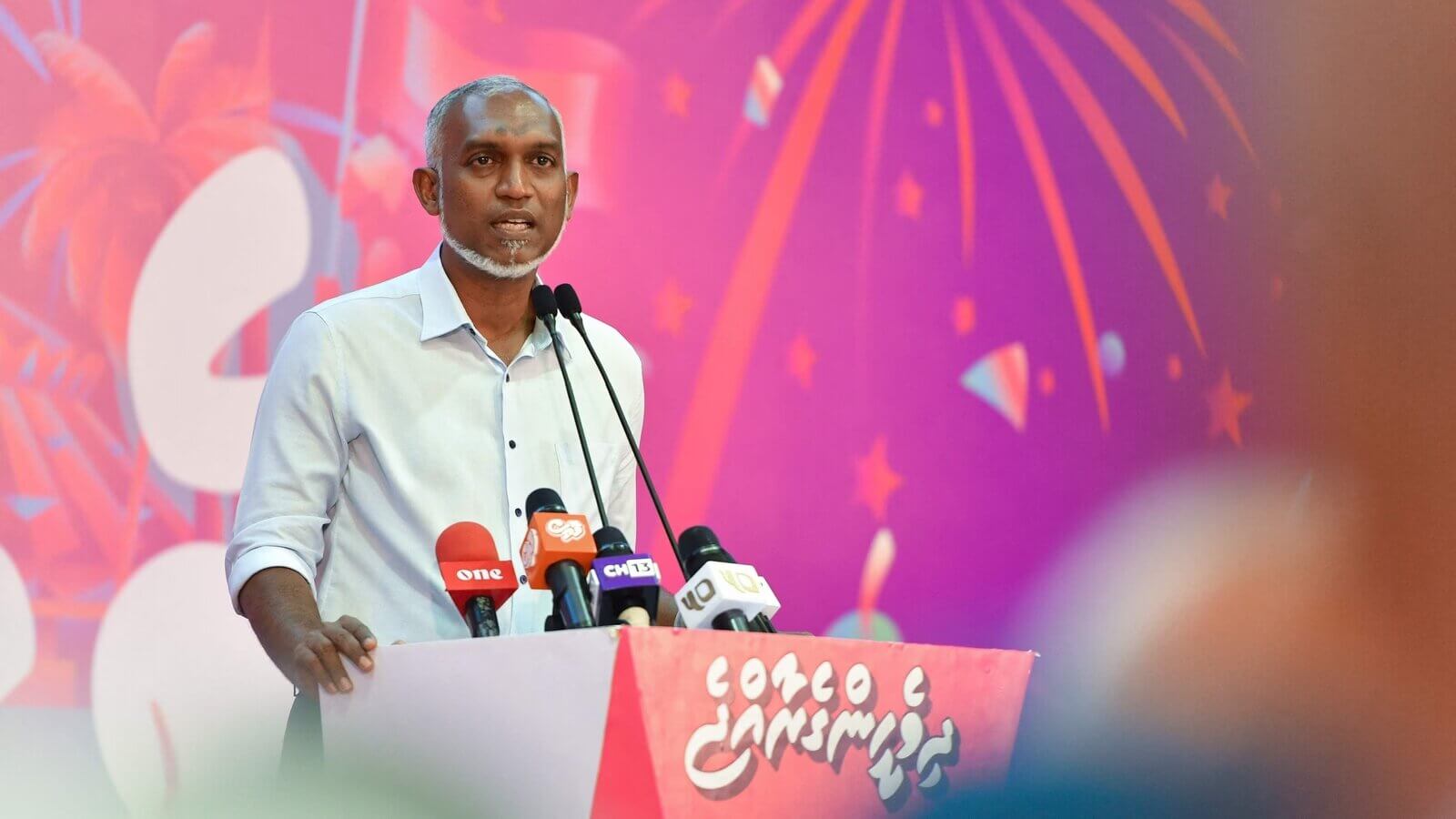In October, the Maldives elected a new President - Mohamed Muizzu, whose People’s Progressive Party coalition secured around 54% of the votes. Muizzu’s victory has raised alarm bells in India, which believes that the new President is pro-China and will allow Beijing to establish a foothold in what is generally considered India’s backyard.
According to reports, India is worried about losing an ally in former President Ibrahim Solih and the relative ease by which Muizzu was able to garner public support by vowing to move forward with the ‘India Out’ campaign, which was launched by Muizzu’s party in October 2020, and aimed at removing unarmed Indian personnel stationed in the country at the request of the Maldivian government to train its military.
Muizzu has been doubling down on his campaign promise of removing foreign entities from the island nation. Moreover, following his victory, Muizzu told the Indian ambassador that all Indian military personnel should be removed. In fact, he has, on several occasions, said that he would return the Indian military from the shores of Maldives “as soon as possible.”
In this regard, Muizzu’s ascension to power is a major blow to India, which has invested millions of dollars in the country during Solih’s rule to counter China’s moves in the region.
Maldivian President Muizzu has called for the removal of Indian military personnel from the archipelago and has threatened to review agreements with India. https://t.co/CA1ZqwjhHF
— The Diplomat (@Diplomat_APAC) November 25, 2023
India, Maldives’ Relations Over the Years
Traditionally, India and Maldives have shared a close, cordial and multidimensional relationship. For instance, India became the first country to establish diplomatic ties with the island nation following its independence in 1965.
The two countries also share a robust defence relationship, with their armed forces engaging in military drills and India providing Maldives with defence equipment and training. The most recent example was Indian Defence Minister Rajnath Singh’s visit to Malé and India gifting the country with two ‘homemade’ military ships.
Maldives also holds geostrategic importance for India as it is located less than 2,000 km from India on the main shipping route between the East and the West. India has also given millions in development aid to Maldives.
Yet, despite this solid economic, defence, and developmental bilateral framework, the Maldives has slowly been forming closer ties with India’s adversary China. Things began to change under former Maldivian President Abdullah Yameen, who is a close ally of Muizzu. Under Yameen, the Maldives officially joined China’s flagship Belt and Road initiative in 2014, and Chinese funding to the Maldives reached almost $1.5 billion during his term as President.
Moreover, during Yameen’s term, ties with India had greatly soured. Following Indian and international criticism of Yameen’s crackdown on dissent, his government accused Indian military personnel stationed in the country of espionage and ordered India to remove certain military equipment from Maldivian territory.
Maldivian Public Opinion on Relations with India
Apart from the China angle, Muizzu’s anti-India stance reflects public opinion, which is against foreign military presence. Per reports, India’s military presence includes personnel, equipment, and intelligence agents. The Maldivian public is likely to view this presence as a violation of the country’s sovereignty. As the Maldivian public has expressed sentiments against the previous Solih government for prioritising relations with India.
Muizzu and the Maldives’ opposition have tapped into this public anger through the ‘India Out’ campaign, specifically targeting Indian military installations. Furthermore, Muizzu has proposed an independent foreign policy and recently asked the Indian government to remove its remaining military personnel from the island nation.
This political U-turn in the Maldives does not bode well for Indian geopolitical interests. It also means that New Delhi needs to tailor its foreign policy towards Malé in a way that is viewed positively by the Maldivian public.

